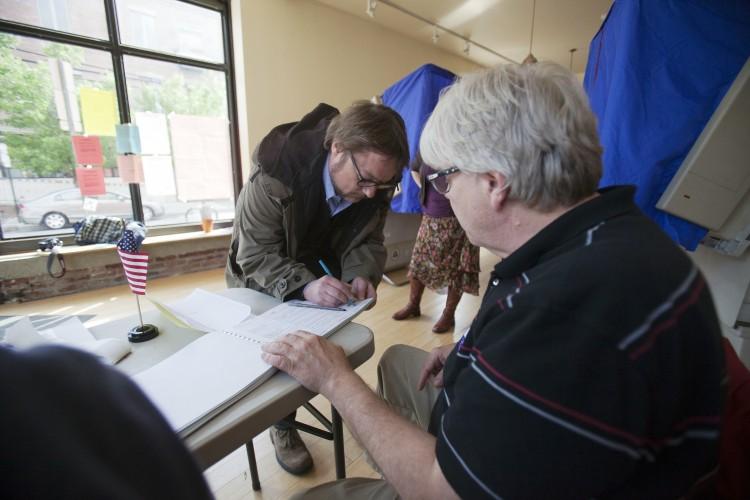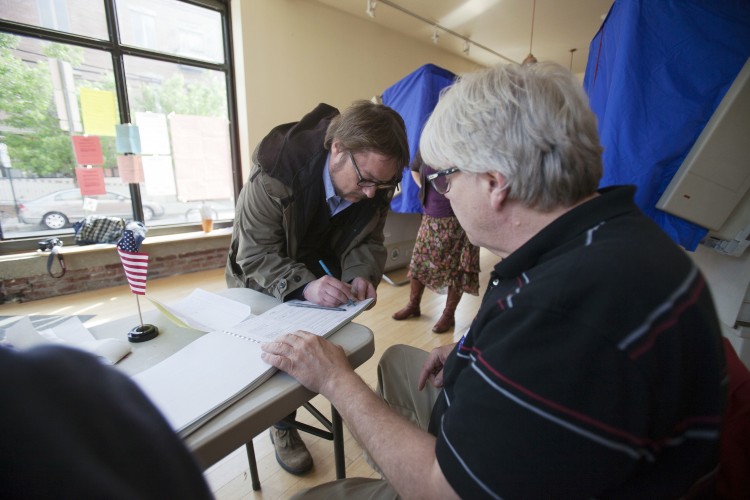A contentious issue in this year’s elections is the voter ID laws passed in 33 states. Seventeen of these states require that the ID presented at the polls show a photo of the voter, according to the National Council of State Legislators (NCSL).
News21 examined whether the ID voter laws that require a photo serve a legitimate need to combat voter impersonating another voter at a voting place—the one kind of voter fraud where a state-issued photo would be helpful in identification. After an exhaustive study of examining records in all 50 states and news reports, their investigation found only 10 cases of voter fraud by impersonation.
Republican legislatures and Republican governors, with the notable exception of Rhode Island, passed voter ID laws to prevent what they said was widespread voter fraud. The proponents say they are protecting the integrity of the electoral process.
The Republican National Lawyers Association says the ID laws are needed and compiled over 300 examples of alleged voter fraud in 46 states, but says its list is not meant to be comprehensive. These cases are listed by state at the RNLA website.
The opponents of the photo ID requirement say there is at most a minuscule amount of voter fraud that does not warrant disenfranchising thousands of voters.
Democrats say the motive behind these laws is voter suppression. The state laws vary on requirements, but generally speaking, the voters most likely not to have a correct photo ID, such as a driver’s license, tend to be the poor, minorities, and the elderly, who tend to vote Democratic.
A voter who lacks a driver’s license can often obtain an ID issued by the state without cost, but the individual will have to provide documentation, such as a birth certificate. The would-be voter may then incur costs that are a financial hardship, and/or encounter difficulties in accessing state offices.
At most, supporters and opponents have done state surveys and collected news reports to provide anecdotal evidence of the extent of fraud, but no one had undertaken a comprehensive investigation until News21.
News21 is a program of the Carnegie Corporation of New York and the John S. and James L. Knight Foundation begun in 2005 to “train a new generation of journalists capable of reshaping the news industry,” according to its website. Two dozen top student journalists from 11 universities investigated the impact on American voters of recent changes in election laws and voting procedures in the 50 states.
Compiling the Universe of Voter Fraud
To determine the extent of voter fraud, News21 conducted an exhaustive investigation. A team of reporters collected, compiled, and analyzed all reported cases of election fraud in the United States since 2000.
When the team contacted each state elections office, they were often told that its office doesn’t track voter fraud and to contact the state attorney general. The latter often directed the team to contact every county district attorney.






